4 citations,
April 2018 in “Journal of Mind and Medical Sciences” Patients should discuss risks with doctors before using finasteride for hair loss.
 356 citations,
September 2014 in “Journal of Clinical Research in Pediatric Endocrinology”
356 citations,
September 2014 in “Journal of Clinical Research in Pediatric Endocrinology” Childhood obesity is rising globally due to various factors, and early prevention and healthy lifestyle changes are crucial.
 4 citations,
December 2022 in “International Journal of Molecular Sciences”
4 citations,
December 2022 in “International Journal of Molecular Sciences” Zinc is crucial for skin health and treating various skin disorders.
 6 citations,
December 2019 in “Dermatologic Therapy”
6 citations,
December 2019 in “Dermatologic Therapy” Oral dutasteride improves hair growth, reduces hair loss, and is safe for most patients.
 26 citations,
February 2020 in “International Journal of Biological Macromolecules”
26 citations,
February 2020 in “International Journal of Biological Macromolecules” Chitosan-coated dutasteride nanocapsules improve hair treatment, and physical stimulation boosts effectiveness.
 April 2020 in “Food Research”
April 2020 in “Food Research” The document discusses various topics including the use of plant derivatives for hair loss, potential food additives, antioxidant properties of different extracts, and the study of bacteria on stainless steel surfaces.
 5 citations,
August 2014 in “Journal of The American Academy of Dermatology”
5 citations,
August 2014 in “Journal of The American Academy of Dermatology” Smoking doesn't cause or prevent Frontal Fibrosing Alopecia, hormonal imbalance may be involved, and a combination of antiandrogens and steroids can help stabilize the condition.
 4 citations,
December 2020 in “Neuropsychiatric Disease and Treatment”
4 citations,
December 2020 in “Neuropsychiatric Disease and Treatment” Women with skin conditions who have body image concerns often experience mental health issues and a lower quality of life.
 4 citations,
January 2019 in “Einstein (São Paulo)”
4 citations,
January 2019 in “Einstein (São Paulo)” Dupilumab improved severe atopic dermatitis in a patient who didn't respond to other treatments.
 4 citations,
June 2018 in “PLOS ONE”
4 citations,
June 2018 in “PLOS ONE” Iron levels are linked to insulin resistance in men and postmenopausal women, but not in premenopausal women.
 4 citations,
January 2018 in “International Journal of Trichology”
4 citations,
January 2018 in “International Journal of Trichology” A rare genetic disease causes sparse hair and early blindness due to a gene mutation.
 12 citations,
December 2018 in “Journal of Cosmetic Dermatology”
12 citations,
December 2018 in “Journal of Cosmetic Dermatology” Hair transplant boosts self-esteem and appearance satisfaction, especially in those with high self-esteem.
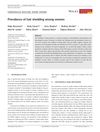 7 citations,
October 2016 in “Dermatologic Therapy”
7 citations,
October 2016 in “Dermatologic Therapy” About 40% of women without hair loss and 60% with hair loss experience a lot of hair shedding, especially those under 50 with long hair.
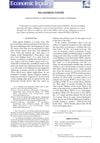 1 citations,
March 2019 in “Economic Inquiry”
1 citations,
March 2019 in “Economic Inquiry” Balding men value hair restoration highly, willing to pay over $5,000 for a slight improvement.
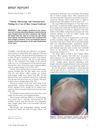 4 citations,
May 2017 in “Pediatric Dermatology”
4 citations,
May 2017 in “Pediatric Dermatology” The study found that Short Anagen Syndrome results in short hair growth not due to hair fragility, and hair may grow longer after puberty.
 10 citations,
January 2017 in “Skin appendage disorders”
10 citations,
January 2017 in “Skin appendage disorders” Emotional stress can trigger intermittent hair loss in chronic telogen effluvium, which may not improve with treatment if stress continues.
 69 citations,
January 2015 in “Current problems in dermatology”
69 citations,
January 2015 in “Current problems in dermatology” Trichoscopy is a quick, noninvasive method to diagnose hair and scalp disorders, often reducing the need for biopsies.
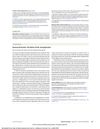 4 citations,
August 2017 in “JAMA Dermatology”
4 citations,
August 2017 in “JAMA Dermatology” Norman Orentreich pioneered hair transplantation, improving techniques over time for more natural results.
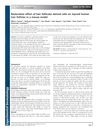 4 citations,
January 2015 in “Experimental Dermatology”
4 citations,
January 2015 in “Experimental Dermatology” Human hair follicle dermal cells can help repair damaged hair follicles.
 33 citations,
November 2014 in “Military Medicine”
33 citations,
November 2014 in “Military Medicine” The U.S. military's teledermatology program was effective in providing fast and successful skin care in remote locations, preventing unnecessary evacuations.
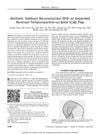 9 citations,
June 2014 in “Journal of Craniofacial Surgery”
9 citations,
June 2014 in “Journal of Craniofacial Surgery” The method for sideburn reconstruction was safe and effective, giving natural-looking hair with minimal scarring.
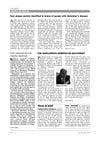 1 citations,
July 1997 in “The Lancet”
1 citations,
July 1997 in “The Lancet” Scientists found a new protein, AMY117, common in Alzheimer's patients, which could be important for treatment and diagnosis.
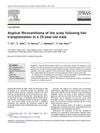 4 citations,
July 2010 in “Journal of Plastic Reconstructive and Aesthetic Surgery”
4 citations,
July 2010 in “Journal of Plastic Reconstructive and Aesthetic Surgery” A man developed a rare cancer on his scalp after a hair transplant possibly due to sun damage, laser effects, and inflammation.

The new gel for hair loss is safe, effective, and reduces side effects.
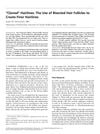 October 2001 in “Dermatologic Surgery”
October 2001 in “Dermatologic Surgery” Cutting and implanting hair follicles can create finer, more natural-looking hairlines, with about half of the implanted hairs growing back.
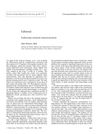 3 citations,
May 2004 in “Journal of neurosurgery”
3 citations,
May 2004 in “Journal of neurosurgery” Endoscopy-assisted surgery for craniosynostosis showed excellent outcomes with minimal complications and most patients went home the day after surgery.
 3 citations,
August 2002 in “Current Opinion in Otolaryngology & Head and Neck Surgery”
3 citations,
August 2002 in “Current Opinion in Otolaryngology & Head and Neck Surgery” Hair transplantation, especially follicular unit micrografting, was the top treatment for male pattern baldness, with a focus on natural results and ongoing improvements in both surgical and medical management.
 July 2020 in “Journal of the American Academy of Dermatology”
July 2020 in “Journal of the American Academy of Dermatology” Spironolactone does not increase the risk of breast cancer recurrence.
 August 2023 in “Aesthetic Plastic Surgery”
August 2023 in “Aesthetic Plastic Surgery” Platelet-rich plasma therapy helps increase hair density in male patients with hair loss but doesn't change hair thickness.
 12 citations,
June 2020 in “Journal of The American Academy of Dermatology”
12 citations,
June 2020 in “Journal of The American Academy of Dermatology” Platelet-rich plasma is tolerable for lichen planopilaris and doesn't worsen the condition, but its effectiveness is unclear.




























